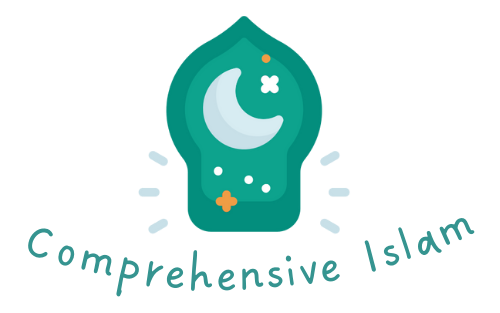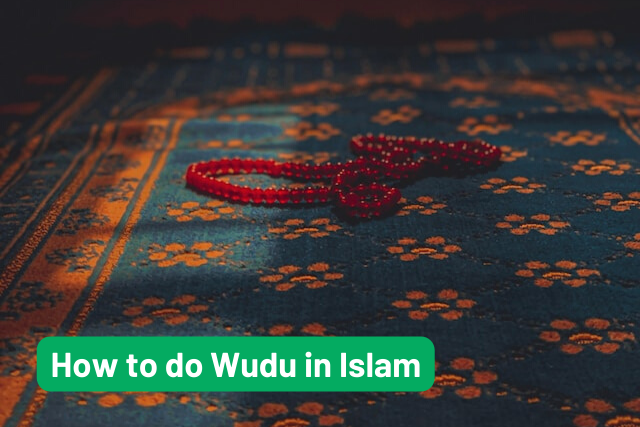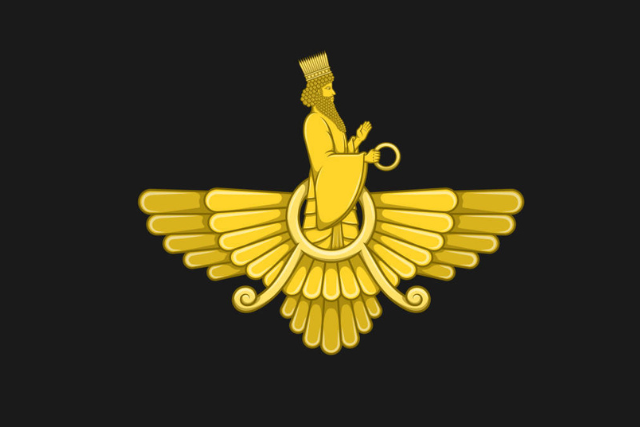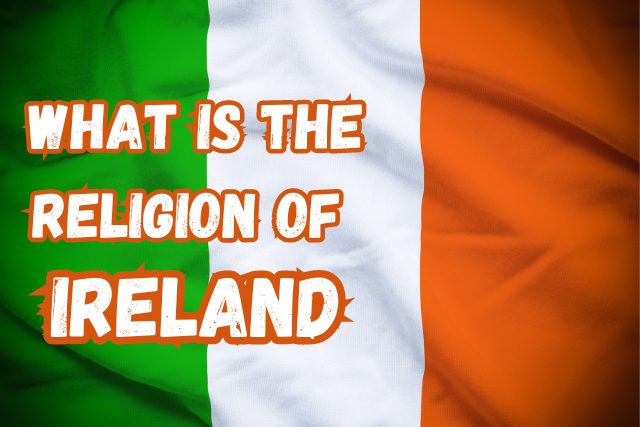What is the Religion of Guatemala
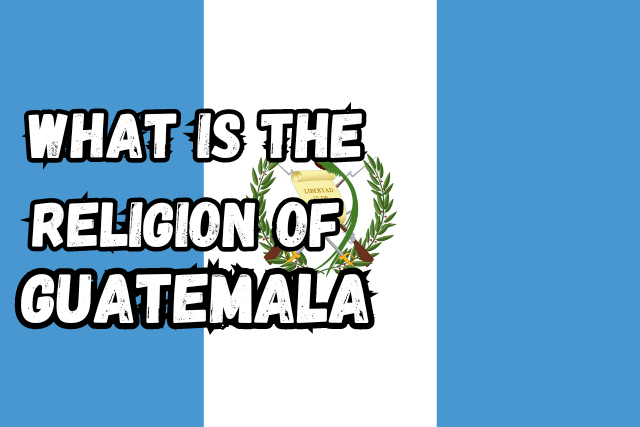
Let’s explore the diverse cultural landscape of Guatemala. Ancient Mayan traditions, colonial influences, and modern expressions of faith intertwine in this fascinating exploration. This exploration delves into the unique spiritual identity that defines this Central American jewel.
Lingering echoes of pre-Columbian Mayan beliefs are found in the highlands. Enduring influences of Catholicism were introduced by Spanish colonization. Guatemala’s religious narrative is a fascinating odyssey through history and culture.
Threads of belief weave through scenic landscapes and vibrant communities, creating a spiritual mosaic. This mosaic reflects the dynamic soul of Guatemala. Are you ready for an immersive exploration of this captivating tapestry? Let’s explore Guatemala’s diverse and dynamic spiritual landscape.
Catholicism
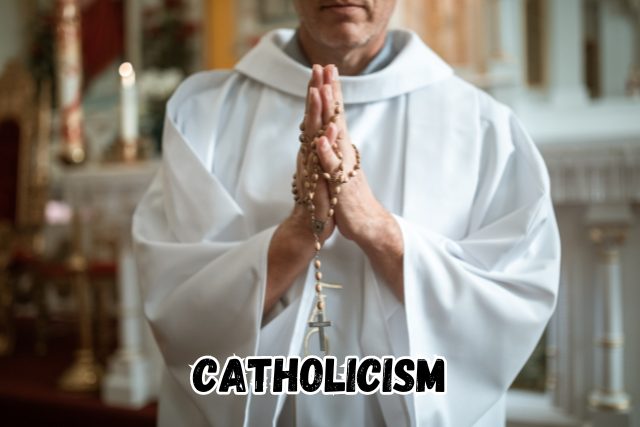
Catholicism holds a profound influence on the spiritual and cultural fabric of Guatemala. It plays a central role in shaping the nation’s identity. From early Spanish colonization to the present, Catholicism has been a guiding force in Guatemala. It permeates society with rituals, and traditions, and has a profound impact on everyday life.
Colonial Roots
The roots of Catholicism in Guatemala trace back to the 16th-century Spanish conquest. Catholic missionaries arrived, bringing the religious teachings of the Roman Catholic Church. Fervent efforts to convert the indigenous population established Catholicism as the dominant faith, laying the groundwork for its enduring presence.
Religious Festivals and Processions
Catholicism in Guatemala is vividly expressed through religious festivals and processions. They form an integral part of the cultural calendar. Notable among these is Semana Santa (Holy Week), a week-long celebration leading up to Easter.
It’s marked by elaborate processions, intricate floats, and solemn rituals attracting both locals and visitors. These events serve not only as religious observances but also as expressions of cultural identity and community solidarity.
Devotion to Saints
Guatemalan Catholicism features strong devotion to saints. Each region often celebrates its patron saint in local festivities. The veneration of saints, like Virgen de Guadalupe and Santo Hermano Pedro, fosters a sense of spiritual connection. It serves as a unifying element within the Catholic community.
Syncretism
Catholicism in Guatemala has undergone syncretism, blending indigenous Mayan beliefs with Catholic practices. This is evident in the coexistence of Catholic rituals with traditional Mayan ceremonies. It showcases the adaptability of the faith to the local context and the cultural resilience of the Guatemalan people.
Social Impact
Beyond its religious dimensions, Catholicism has significantly influenced social values and community engagement in Guatemala. Emphasis on charity, compassion, and community service is reflected in initiatives led by Catholic organizations. They contribute to the well-being of the broader society.
Protestantism

In recent decades, Evangelical Protestantism has significantly grown in Guatemala. Missionary efforts and local conversions contribute to the expansion of Protestant denominations. Evangelical Christianity’s influence is noticeable in urban areas, where churches have become prominent features of the cultural and religious landscape.
Rapid Growth
Over recent decades, Guatemala has seen rapid growth in Protestantism, particularly evangelical and Pentecostal denominations gaining a substantial following. This popularity surge has led to the establishment of numerous Protestant churches, ranging from small community congregations to larger urban assemblies.
The energetic worship styles and emphasis on personal spiritual experiences have resonated with many Guatemalans.
Diverse Denominations
Protestantism in Guatemala features a diverse denominational landscape. Various evangelical and Pentecostal churches bring distinctive worship styles, theological emphases, and cultural nuances to the religious scene.
Moreover, the array of denominations reflects the dynamic nature of Protestantism. It allows followers to find expressions of faith that resonate with their individual beliefs and preferences.
Community Outreach
Protestant churches in Guatemala actively engage in community outreach and social initiatives. This involvement extends beyond spiritual matters, addressing social issues such as poverty, education, and healthcare.
Protestant organizations in Guatemala play a crucial role in providing support networks and community development programs. They foster a sense of social responsibility among their followers.
Evangelical Churches
Protestantism in Guatemala links to evangelical churches, known for vibrant and dynamic worship. They stress enthusiastic congregational participation, spirited music, and fervent expressions of faith. The evangelical movement resonates with Guatemalans seeking a more intimate connection with their faith, emphasizing personal spiritual experiences.
Youth Engagement
In Guatemala, Protestantism resonates, especially among the youth. The dynamic and participatory nature of Protestant worship services, with contemporary music and interactive preaching styles, appeals to a younger demographic. This engagement of the youth significantly contributes to the continued growth and vitality of Protestant communities.
Mayan Legacy
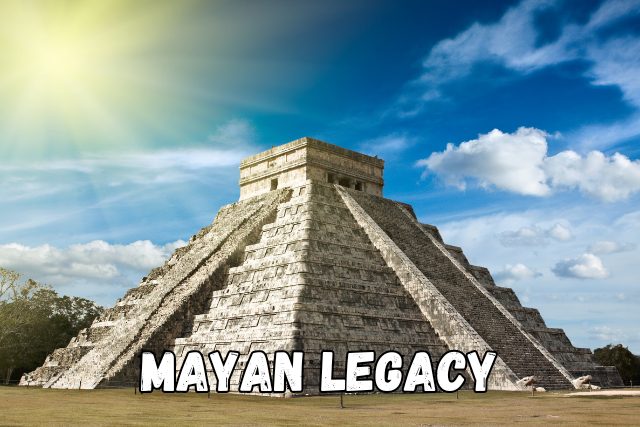
The Mayan legacy is a foundational thread in Guatemala’s intricate tapestry of spiritual and cultural identity. Rooted in the ancient civilization of the region, it continues to shape the beliefs, practices, and worldview of the Guatemalan people. This legacy blends seamlessly with other faith traditions, creating a unique spiritual mosaic.
Ancient Wisdom
The Mayan civilization was renowned for advanced astronomy, mathematics, and agriculture. It left behind a legacy of profound spiritual wisdom. Mayan beliefs were deeply rooted in the interconnectedness of nature and the cosmos.
Deities represented celestial bodies, natural elements, and ancestral spirits. This ancient wisdom forms the spiritual foundation of Guatemala’s indigenous communities.
Rituals and Ceremonies
Mayan rituals and ceremonies express spiritual devotion and cultural continuity. They involve offerings, dances, and intricate ceremonies dedicated to ancestral spirits, agricultural cycles, and celestial events. Mayan communities preserve and pass down these traditions, ensuring the endurance of their spiritual heritage.
Sacred Sites
Remnants of ancient Mayan cities, like Tikal and El Mirador, stand as spiritual testaments. They’re considered sacred archaeological sites, serving as portals to the divine with deep resonance in Mayan cosmology. Pilgrimages to these sites persist in modern Mayan spiritual practices.
Cosmology and Calendar
Mayan cosmology and the intricate Long Count calendar reflect a profound understanding of time as a sacred construct. The calendar, with its cyclical nature, played a crucial role in Mayan religious ceremonies and the planning of agricultural activities. Elements of the Mayan calendar persist in contemporary spiritual practices, intertwining with other faith traditions.
Final Thoughts
In conclusion, Guatemala’s religious fabric is a rich tapestry woven from threads of Catholicism, indigenous Mayan spirituality, and Protestantism. Unique syncretic expressions emerge from their interplay. This diversity reflects Guatemala’s complex history and contributes to its cultural richness.
It defines the spiritual soul of this Central American nation. As Guatemalans navigate tradition and modernity, preserving and celebrating this religious diversity are integral to the country’s identity and unity.
FAQs
What is the religion of Guatemala?
Guatemala is religiously diverse, with the majority practicing Catholicism.
Who do Guatemalans worship?
Guatemalans worship a variety of deities and spiritual entities. Including the God of Catholicism, Protestant Christian concepts of God, and ancestral spirits from Mayan traditions.
Does Guatemala have Muslims?
The Muslim population in Guatemala is minimal, and Islam is not a prominent religion in the country.
Are there mosques in Guatemala?
While Guatemala has a small Muslim community, the presence of mosques is limited compared to other religious structures.
Is there religious freedom in Guatemala?
Yes, Guatemala upholds religious freedom. It allows individuals to practice their faith of choice without significant restrictions.
